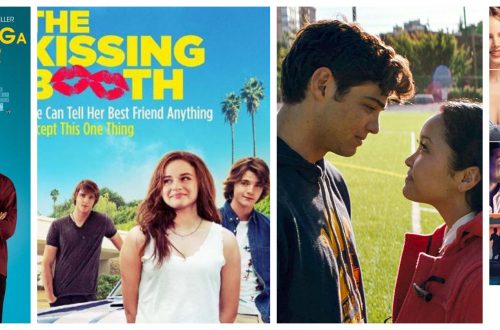
Why Do We Love Binge-Watching and On-Demand Content
Why Do We Love Binge-Watching
Binge-watching and on-demand content have become a cultural phenomenon. With streaming services like Netflix, Hulu, and Amazon Prime at our fingertips, we have the ability to watch entire seasons of our favorite shows in one sitting or dive into new series whenever we please. But why do we love it so much?
The phenomenon of binge-watching can be traced back to the emergence of digital video recorders (DVRs). With DVRs, viewers could easily record their favorite shows and watch them at their own leisure.
In this article, we will explore the psychological factors that contribute to the appeal of streaming, examining the role of convenience, escapism, social connection, and the impact on our emotional well-being.
The Appeal of Convenience:
The appeal of convenience is something that cannot be denied. In the world we live in today, where everything moves at a fast pace and time is a precious commodity, people are always looking for ways to make their lives easier. Gone are the days when you had to wait all week long for your favorite show to air on TV.
The fact that we can now binge-watch entire seasons of shows in one sitting or catch up on missed episodes with just a few clicks has revolutionized the way we consume media. We no longer have to plan our schedules around broadcast times or worry about setting our DVRs. Technology has given us the freedom to enjoy entertainment on our own terms.
The freedom to control our viewing experience aligns with our desire for autonomy and flexibility. Furthermore, the ability to access content on multiple devices, such as smartphones and tablets, adds to the convenience factor and enhances our overall streaming experience.
Humans are wired for instant gratification and getting exactly what they want without delay can be incredibly satisfying. Perhaps, that is one of the primary reasons to why do we love binge-watching so much.
Escapism and Emotional Regulation
The connection between escapism and emotional regulation is often overlooked, but it plays a crucial role in why we love binge-watching and on-demand content. Escapism can be defined as a way to avoid reality by engaging in activities that provide distraction or relief. In this case, binge-watching provides an escape from daily life through immersing oneself in a different world or storyline.
Studies have shown that indulging in on-demand content can help regulate emotions such as anxiety, depression, and loneliness. This is because when we become engrossed in a show or movie, we are able to temporarily forget about our own problems and feel connected to characters on-screen.
On days when we feel overwhelmed or stressed out, watching an episode of a favorite show might provide comfort. For example, I have watched all the seasons of ‘FRIENDS‘ six times and yet it gives me immense pleasure to watch it all over again. I enjoy the playfulness of the characters, storyline, jokes, and the daily life of theirs for a while.
However, while escapism can be comforting in moderation, excessive consumption may lead to avoidance behaviors. Therefore, it is important to strike a healthy balance between indulging in our favorite shows for relaxation purposes while making sure not to completely disconnect from reality.
Immediate Gratification
Streaming platforms offer instant access to a vast library of content, satisfying our innate desire for immediate gratification. The reason why immediate gratification is so attractive lies in its ability to offer quick satisfaction with minimal effort. It is easy to get hooked when you can indulge yourself without waiting for days or even weeks between episodes or seasons of your favorite shows.
Streaming services like Netflix have not only changed how we consume media but also our expectations of it. We now expect all shows and movies to be available at any time, anywhere, with no commercial breaks or waiting periods. It is no wonder why binge-watching has become such an addictive behavior.
Social Connection and FOMO
Social connection is very important to people. Nowadays, social media and messaging apps are common, and we call this the “age of connectivity.” However, this also brings a new challenge: FOMO, which means fear of missing out. It is the anxiety we feel when we think others are having more fun or better experiences than us.
Social media makes this fear worse because it always shows people’s best moments. This fear makes us constantly check our phones for updates. Binge-watching helps us escape from these worries by letting us focus on something else. It satisfies our need for social bonding, whether we watch shows alone or with friends.
The Role of Autoplay and Endless Content
Streaming platforms are designed to keep us hooked and engaged for as long as possible. The autoplay feature, where the next episode automatically begins after the current one finishes, capitalizes on our cognitive bias and encourages continuous viewing.
Endless content fills our desire for variety and helps us avoid boredom in an ever-changing media landscape. This instant gratification is addictive, leading many viewers to spend hours upon hours binge-watching their favorite series. Endless content ensures there is always something new to watch just as soon as we finish binging through a series or title.
However, this convenience comes at a price: viewers can easily lose track of time and addicted watching the idiot box for hours.
Conclusion
The convenience of being able to watch what we want, when we want it has changed how we consume media and has led to a shift in the entertainment industry.
But what does this mean for the future? Will traditional TV become obsolete? What new developments will arise in response to our desire for immediate gratification? One thing is certain – consumer expectations continue to evolve at a quick pace.
As streaming services compete to each other for viewership, they must adapt quickly or risk losing their audience altogether. It will be interesting to see how technological advancements such as virtual reality and artificial intelligence influence the way we interact with media in the coming years.



